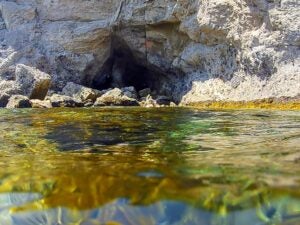Temporal organization and coordination of physiology can streamline energy allocation with potential consequences for energy acquisition, stress/immune response, reproduction and life cycle, and acclimation/adaptation. Temporal management on shorter (<24h to ~24h) timescales can be especially important in dynamic environments such as the intertidal, where daily fluctuations in external conditions (e.g. O2, heat, UV stress, desiccation) can be extreme. For phototrophs, temporal organization can govern the interactions of essential pathways like photosynthesis and nitrogen acquisition, whose resources can follow separate environmental cycles/pulses of availability. We are actively investigating how giant kelp temporally orchestrates its physiology, with specific interest in internal biological timekeeping by the circadian clock.
